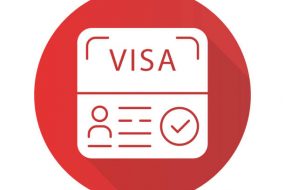

Every plan contains some data. a business plan you are going to write for your new business should attract the investors and make them back your startup. there is an odd idea that should be recognized by you before starting. The data does not have to be right to be included: it just needs to convince the reader. This does not mean that you should make up proof. You should not lie. However, you can get information from lots of sources and interpret it to suit what you believe to be true.The list below suggests some places where you can get data, in descending order of reliability:
• Government statistics
Detailed government numbers are the best things to quote and this includes international trade bodies, which may also publish figures.
• Market research reports
Many market research reports are available in university libraries or specialist public libraries free of charge. In the UK, members of the public can use libraries such as the City Business Library in London to carry out research. Some university libraries will permit access from people who are not students, by arrangement.
• University departments
University departments often have experts on your particular industry. Track them down and ask them what information is available and where. They may be able to refer you to published papers, but even if you just quote their views , then that is some reassurance for the reader of your plan.
• Trade associations
The staff at trade associations will often be very helpful. There are often both national and international associations to try. They will frequently have libraries, will know who is researching particular fields and, as with academics, may be quoted in your plan.
• Trade press
The trade press is often useful. You can telephone the journalists, who are often very knowledgeable and will also have ideas of who else you can speak to.
• Press cuttings
Press cuttings can be accessed through the libraries and also through the internet. There may be a cost to this. Try the trade press first but the national press is worth a go too usually the most serious newspapers and magazines. You may find a journalist who has gathered lots of information for an article and they may share some of this with you.
• Brochures of competitors
The published material, including published reports and accounts, of your competitors, suppliers, and customers may provide useful data.
• Interviews/comments from suppliers, customers and competitors
You can try interviewing suppliers, customers, and competitors. What they say must be used carefully because it may be unreliable, but sometimes it can be helpful. Whenever you gather information by talking to people, ask them who else you can speak to. In this way, you may find the recommendation of a recommendation gets you to the person who gives you a really useful fact.
• The World Wide Web.
Finally, remember to try searching the internet for data. There are millions of pages of information available on the internet, giving you access to universities, trade associations, government bodies, newspapers, research organizations, libraries and even amateur enthusiasts. Whilst searching can be very time-consuming, it is often worth a go. If you don’t find what you want immediately, then use every search engine you can: each one covers only a fraction of what is out there, so if one has nothing then another may have just the link you are looking for. If you are using Google don’t forget to use their search engine options for academic articles and also for blogs, which may lead you to information or to new sources. Always bear in mind when using the internet that ideally you want original data, not someone quoting someone quoting someone… and just because a 14 How to Write a Business Plan fact is on Wikipedia does not make it right. The problem with easily getting data from the internet is that the reader of your plan can also easily check it.








